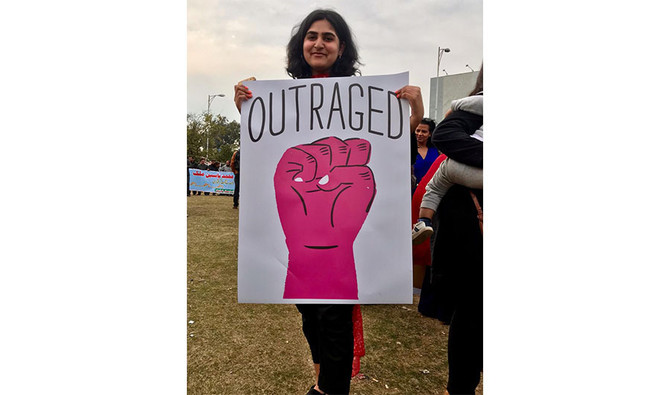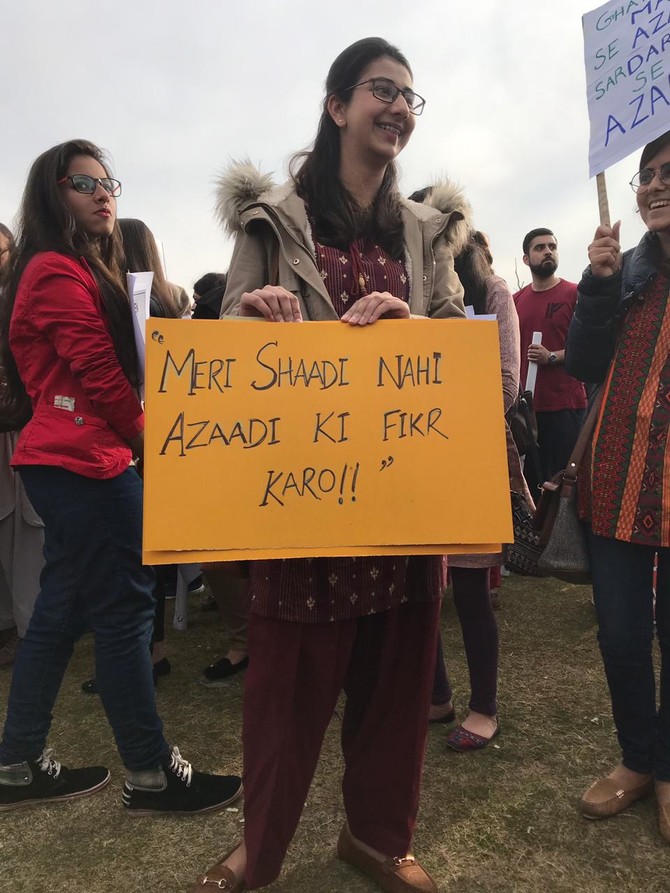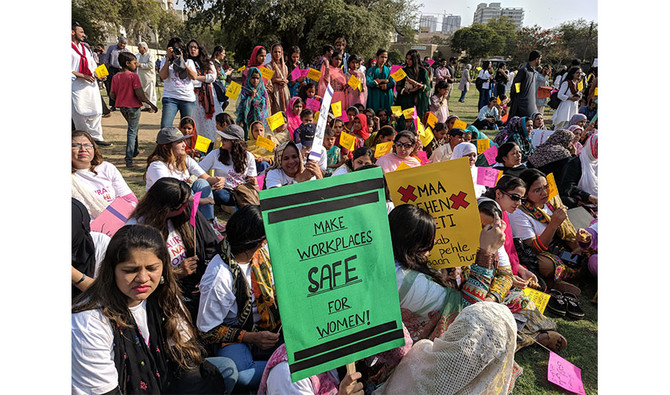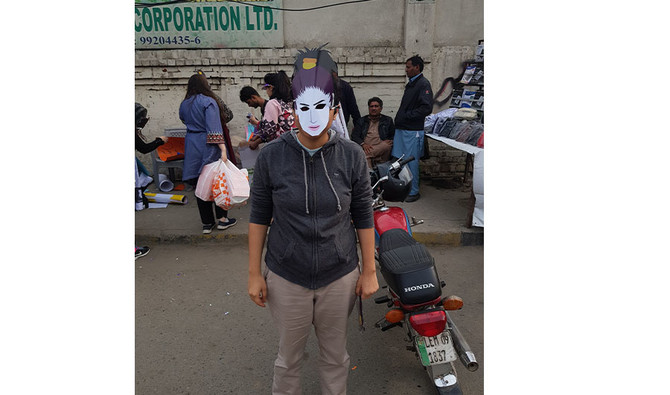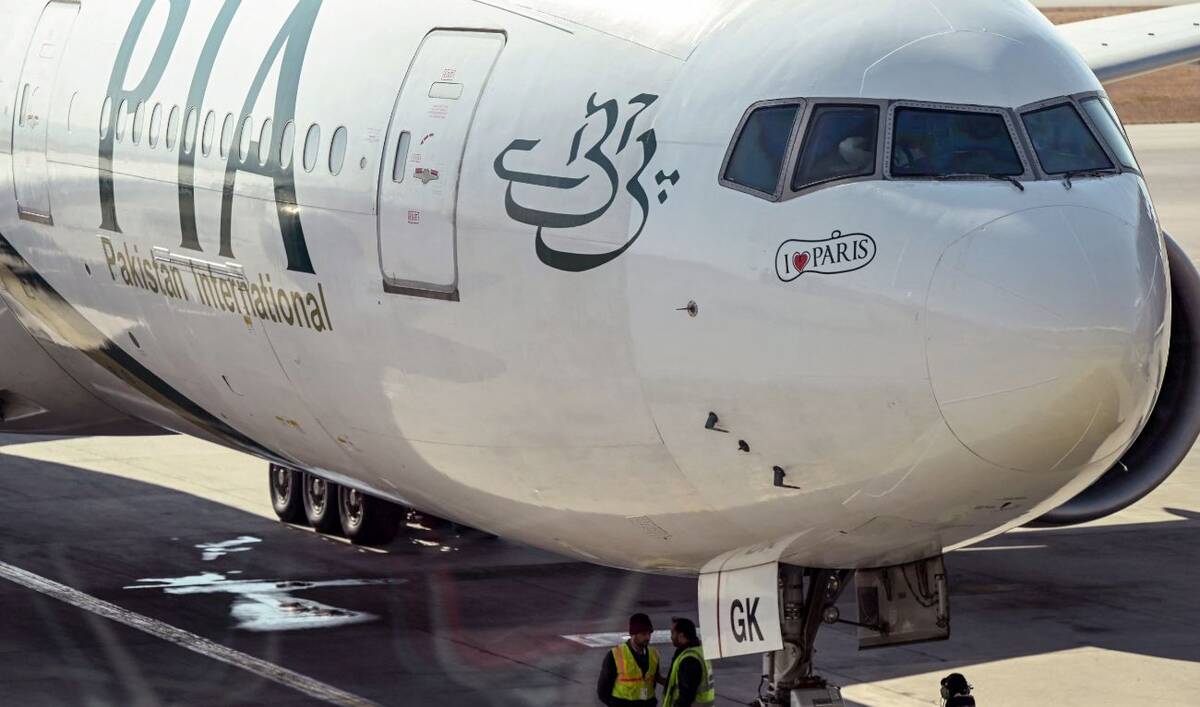ISLAMABAD/KARACHI/LAHORE: A procession of women accompanied a charpoy covered in a white cloth and a sign that read “patriarchy” outside Karachi’s iconic Frere Hall on Friday, chanting "Aurrat Azaad, Samaaj Azaad."
The mock funeral and the cries of "free women, free society" were part of a series of protests held around the country, dubbed Aurat March (women’s march), in which rights campaigners, activists, politicians and thousands of women from all walks of life came together to draw attention to women’s issues and gender inequality in Pakistan.
Women in wheelchairs showed up, as did young men and women carrying babies in their arms. Women who work in bonded labour at brick kilns arrived to demand higher wages. A woman who drove a rickshaw to support her family brought her vehicle along to the march in Lahore.
Domestic abuse, sexual violence, job discrimination, honour killings, acid attacks and child and forced marriages make Pakistan the world’s third-most-dangerous country for women, a 2018 Thomson Reuters Foundation expert poll showed.
“Today we are one. We are all women,” said rights activist Nighat Saeed Khan, one of the organisers of the march in Lahore. “There is no individual slogan and no slogan of a particular organisation. It is women’s day and we are women only. Let’s struggle jointly. Let’s raise our voice for women rights jointly, as one.”
According to estimates by Arab News reporters present on the scene, between 2,500-3,000 people each attended the protests in the cities of Lahore and Karachi while the Islamabad demonstration attracted less than 500 people.
The numbers were painfully small for a country of 208 million people, but passions were high.
As the clock struck 3 pm, women, girls, boys and men trickled on to the empty plot outside Islamabad’s press club, home to many of the city’s demonstrations.
The march was officially inaugurated with a performance by a group of singers and musicians from the Cholistan desert followed by speeches by organisers, activists and march participants.
Eman Ramay, 17, attended the march with her extended family in the capital city of Islamabad, holding a poster depicting a pink fist painted under the word ‘outrage’ high in the air. Next to her, Sabine Malik, a teacher, carried a banner that read: ‘The more you kill us, the more women will come out of their houses.”
Artist Shehzil Malik had created a series of striking posters for the march to negate atypical depictions of Pakistani women as submissive. “These women mean business,” she told a newspaper reporter before the protest in Lahore.
"At least women have started speaking for themselves and it's a big change," Seema Maheshwary, a civil society activist, said standing on Karachi’s main Jinnah Road. "This is a change and one day there will be a complete change."
Zubaida Mustafa, among Pakistan's first women journalists, said she was happy to see young women finally standing up for their rights.
"I am happy that the time has come that women have understood their strength and power,” she said. “This Aurat March will lead us to a Pakistan where women will enjoy equal rights.”
While Pakistan has made some progress on women’s right in recent years, including anti-discrimination laws and reserved seats for women in parliament, there is still a long way to go.
“I don’t know what this will actually do but it feels like we need to be out here,” said Mahira Ijaaz, an 18-year-old university student in Islamabad. “When I talk to my classmates … there’s this attitude that ‘it can’t actually be that bad,’ and it’s showing up in numbers like this that gives you an idea of how many women suffer.”
Sabine Malik, 27, piped in: “No one talks about sexual abuse, marital rape, what happens in our homes! That’s why I’m here -- to speak about abuse publicly because we are discouraged from doing it anywhere else.”
For many, simply being at the march with other women was a moment of power and solidarity.
“It’s an empowering moment that all these women are together and showing each other support, there’s no hierarchy about whose issues are more important,” Sarah Khokhar, 31, a consultant attending her first march, said. “It’s about women, it’s about girls, it’s about transgender people and what they all have to face daily to live their lives.”
In Karachi, Lahore and Islamabad, many men alos showed up to march in solidarity with women.
But Ibrahim Bashir shooed away reporters who tried to talk to him outside the press club in Islamabad: “Why are you talking to me when there’s lots of women here with lots to say!”


